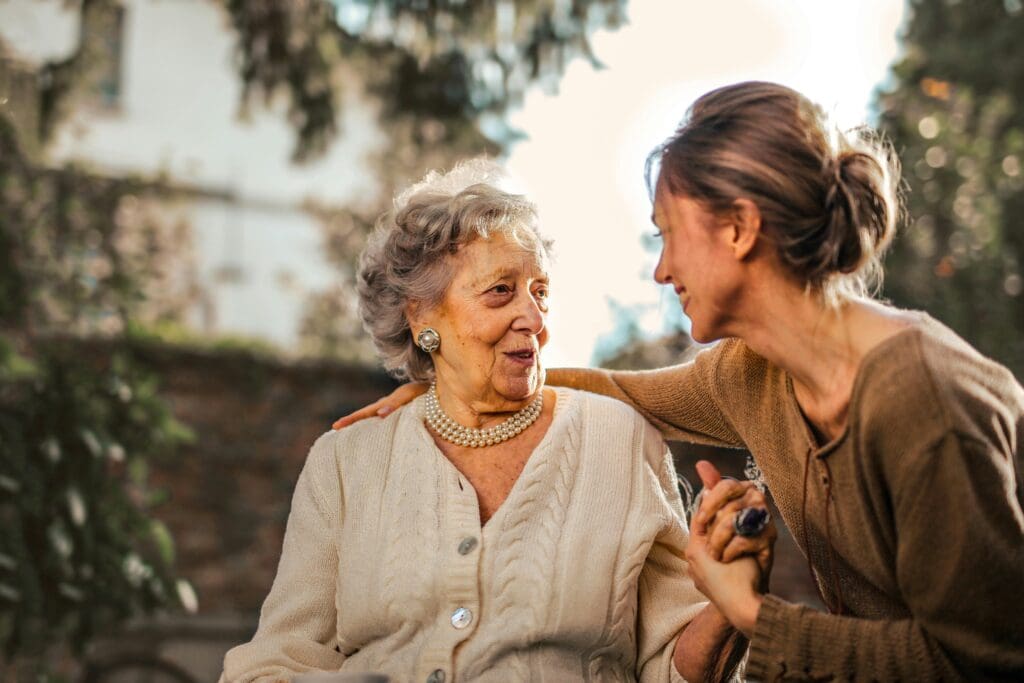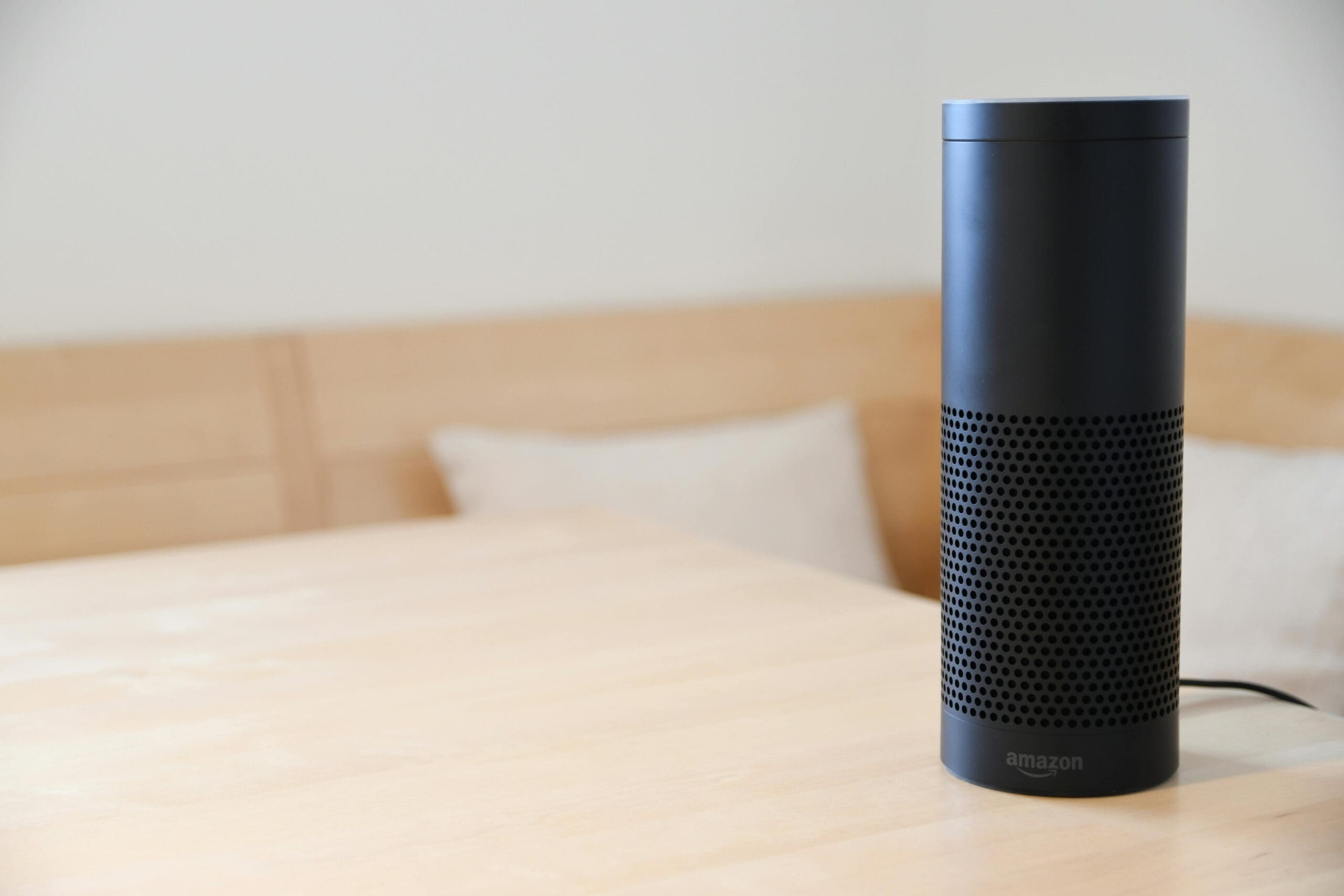Aging in place is a goal for many seniors who wish to remain in the comfort of their own homes as they grow older. Maintaining independence is essential for preserving self-esteem, mental well-being, and quality of life. Help At Home Senior Care in Reno provides senior services personalized to support tailored individual needs, which allows seniors to continue making decisions about their daily routines, healthcare, and personal affairs.
When seniors receive assistance with household tasks, nutrition, and mobility challenges, they retain more control over their lives. This level of autonomy helps them maintain a sense of purpose, making it easier to age with dignity. Rather than conforming to a structured care facility schedule, seniors receiving at-home care can continue engaging in familiar activities and routines, creating a more fulfilling lifestyle.
Social interaction is a vital part of well-being, particularly for seniors. Remaining at home allows them to stay close to friends, neighbors, and family members, fostering a strong support system. At-home senior services facilitate regular visits from loved ones and provide companionship to reduce feelings of loneliness and isolation.
Many seniors who move into institutional settings experience social withdrawal due to unfamiliar surroundings and limited interaction with their previous communities. At-home care services help seniors maintain these critical emotional connections by making it easier for family and friends to visit, attend local events, and remain part of their existing networks. This emotional stability is crucial in promoting happiness and overall mental health.
A familiar environment plays a significant role in a senior's overall health. Studies have shown that remaining at home can reduce stress, lower anxiety, and improve cognitive function. At-home senior services ensure that seniors have the necessary support to maintain a healthy lifestyle while reducing the risks of hospital visits and health complications.
Care providers help seniors establish routines that contribute to long-term wellness, such as regular exercise, nutritious meal preparation, and medication adherence. These services also assist with managing chronic conditions, ensuring that seniors receive the medical attention they need without disrupting their daily lives. By promoting consistent, personalized care, at-home services provide a seamless approach to physical and mental well-being.

For many families, financial considerations play a major role in choosing care options for aging loved ones. Assisted living and nursing homes can be costly, with expenses accumulating over time. At-home senior services provide a cost-effective alternative, allowing seniors to receive the care they need while maintaining financial flexibility.
By eliminating costs associated with residential care facilities—such as room and board, additional medical services, and administrative fees—at-home care presents a practical option for families seeking affordable yet comprehensive support. This allows seniors to allocate resources to specific care needs without unnecessary expenses, making aging in place a sustainable and budget-conscious choice.
Selecting a trusted provider for at-home senior services is crucial for ensuring high-quality care. Families should look for services that offer personalized care plans, experienced caregivers, and a commitment to maintaining independence and well-being. A compassionate and professional team can make all the difference in helping seniors age comfortably at home.
At-home services should be tailored to the unique needs of each individual, providing assistance with daily living activities, medical management, and companionship. Whether seniors require full-time support or weekly visits, the right care plan can help them maintain their lifestyle and enjoy their golden years with confidence.
Aging in place is possible with the right support system. Families considering at-home senior services can explore personalized care options that ensure their loved ones receive the assistance they need while maintaining their independence.
Schedule a consultation with Help At Home Senior Care in Reno to learn more about customized care plans. Taking the next step toward professional at-home care can enhance quality of life, promote well-being, and provide peace of mind for both seniors and their families.
Caring for seniors and individuals with disabilities requires more than just meeting basic needs. Every person has unique challenges, preferences, and goals that demand a tailored approach to care. At Help at Home Senior Care, we understand that a personal care plan is essential for providing effective support, ensuring each individual can thrive while maintaining their independence and dignity.
Why One-Size-Fits-All Solutions Fall Short
Generic care approaches often fail to address the diverse needs of seniors and those with disabilities. For instance, someone living with Parkinson’s disease requires a vastly different level of care than a senior recovering from surgery. A standard care plan might meet some basic needs, but it doesn’t account for the nuanced aspects of a person’s life, such as mobility limitations, medication schedules, or emotional well-being.
When care doesn’t fit, it can feel restrictive—like wearing shoes that are two sizes too small. That’s why a personal care plan makes all the difference. It’s designed to fit perfectly, offering comfort and support where it’s needed most.
Enhancing Quality of Life Through Personalized Care
A personal care plan prioritizes individual needs, ensuring seniors and people with disabilities receive the support necessary to maintain their well-being. By focusing on specific preferences and goals, this tailored approach enhances quality of life.
For example, an individualized plan for a senior with limited mobility might include a mix of physical therapy, safe mobility aids, and support with daily tasks. This attention to detail allows them to remain active and engaged in their own lives, boosting their overall happiness.
At Help at Home Senior Care, we take the time to listen to our clients and their families, understanding their unique circumstances before crafting a plan that enhances both comfort and confidence.
Promoting Greater Independence
A personal care plan empowers individuals to retain as much independence as possible. By focusing on what someone can do rather than what they can’t, these plans build self-esteem and foster a sense of control.
For instance, a care plan for someone with early-stage Alzheimer’s may include reminders for daily routines, structured activities to support memory, and companionship to alleviate loneliness. This approach not only helps them stay active but also gives family members peace of mind, knowing their loved one is thriving in a supportive environment.
At Help at Home Senior Care, our caregivers are trained to follow these personalized plans, recognizing the importance of preserving autonomy. Every small victory—whether it’s preparing a meal or completing a favorite hobby—contributes to a stronger sense of self-worth.
Targeted Strategies for Better Health Outcomes
Health conditions often come with unique challenges that require focused solutions. A personal care plan addresses these needs, offering strategies to manage symptoms, reduce complications, and improve overall health.
For someone with a chronic condition like diabetes, a customized plan might involve meal preparation tailored to dietary restrictions, regular blood sugar monitoring, and medication reminders. These targeted efforts promote physical health while reducing stress for both the individual and their family.
At Help at Home Senior Care, we combine medical expertise with compassionate care, ensuring our clients receive the attention they deserve while maintaining their independence at home.

Bringing Peace of Mind to Families
Families often face uncertainty when seeking care for their loved ones. A personal care plan alleviates this stress by providing clear, tailored solutions that ensure safety, comfort, and dignity.
Knowing that their loved one is receiving individualized care gives families confidence and reassurance. Whether it’s assistance with mobility, specialized Alzheimer’s care, or support for physical disabilities, these plans are crafted with the individual’s unique needs in mind.
At Help at Home Senior Care, open communication with families is a priority, ensuring they remain informed and involved every step of the way.
What Makes a Personal Care Plan Unique
Unlike standardized options, personalized care plans are dynamic. They evolve as needs change, Unlike standardized options, a personal care plan is dynamic. It evolves as needs change, adapting to new health conditions, preferences, or life circumstances. This flexibility ensures that care remains relevant and effective, no matter what challenges arise.
Our experienced caregivers offer support in areas such as:
At Help at Home Senior Care, every aspect of care is tailored to create a seamless experience that prioritizes comfort, health, and independence.
Why Personalized Care is the Future of In-Home Support
The benefits of a personal care plan extend far beyond the individual receiving care. Families, too, experience the relief of knowing their loved one is in good hands. As the demand for in-home care services grows, personalized care will remain at the forefront, setting the standard for quality and compassion.
For residents of Reno and the surrounding areas, Help at Home Senior Care is a trusted partner in creating personalized solutions. Our personal care plans aren’t just about meeting needs—they’re about helping individuals live fulfilling lives in the comfort of their own homes.
Caring for a loved one with dementia involves creating a safe, structured, and engaging environment. For families in Reno, integrating Amazon's Alexa for dementia care in-home routines has proven to be a game changer. This voice-activated technology offers innovative solutions that can simplify caregiving and improve the quality of life for seniors with dementia. Help At Home Senior Care in Reno is dedicated to supporting families with in-home care tailored to meet these unique needs.
Maintaining a structured routine is essential for seniors with dementia, as it helps reduce confusion and anxiety. Alexa can become an invaluable tool for reinforcing daily schedules. By setting reminders for important tasks such as taking medications, attending appointments, or simply getting ready for the day, Alexa helps seniors stay on track without needing constant supervision.
These reminders can be customized to prompt seniors with gentle, easy-to-understand cues. For example, “It’s 8 a.m., time for your morning medication” or “Don’t forget your 3 p.m. doctor’s appointment” can be set up in seconds. Caregivers benefit from knowing that their loved ones have dependable support in maintaining essential routines.
Having Alexa manage reminders reduces the stress on caregivers who juggle multiple responsibilities, offering peace of mind and a consistent experience for seniors. Structured routines help maintain a sense of independence, which is empowering for those living with dementia.
Safety is a primary concern for families caring for seniors with dementia. The voice-activated controls of Alexa can enhance safety by managing smart home devices such as lights, locks, and thermostats. These features reduce the need for physical interaction with potentially hazardous household items and create a safer living environment.
For instance, Alexa can be programmed to turn on lights at specific times or when motion is detected, helping prevent falls during nighttime hours. Seniors can use simple commands like, “Alexa, turn on the hallway light,” reducing the risk of accidents in dimly lit areas.
Caregivers can also set up smart locks that integrate with Alexa, providing added security and preventing unsupervised exits. This can be particularly valuable in cases where seniors might wander unknowingly. Alexa’s integration with security systems allows caregivers to monitor and manage their loved ones' environment remotely, ensuring safety without invasive measures.
Keeping the mind active is crucial for seniors with dementia, and Alexa can facilitate cognitive engagement through various activities. From playing music and audiobooks to offering trivia games and brain exercises, Alexa helps stimulate cognitive function. This level of engagement can enhance mood and encourage participation in daily life.
Music, for example, is known to evoke memories and improve emotional well-being. Seniors can request favorite songs or genres, promoting moments of joy and reminiscence. “Alexa, play 1950s hits” can trigger a positive response and create a pleasant atmosphere.
Beyond music, Alexa can read books, share jokes, or lead interactive games that help keep the mind sharp. These activities require minimal effort to initiate and can be a significant source of mental stimulation. This form of engagement is not only entertaining but also supports memory and cognitive health.
Isolation is a common challenge for seniors with dementia, which can impact their emotional and mental health. Alexa’s communication features help bridge this gap by enabling hands-free calling and messaging. Seniors can easily stay connected with family members and caregivers without having to navigate complicated phone systems.
A simple command like, “Alexa, call my daughter,” allows seniors to reach out and maintain regular contact. This helps foster connection and combats feelings of loneliness, providing peace of mind for families knowing that their loved one has an accessible line of communication.
For caregivers, Alexa’s communication capabilities make it easier to check in and ensure their loved one’s well-being. This support can make a significant difference in the overall care experience, allowing seniors to feel supported and included in family interactions.
As the holiday season approaches, finding a meaningful gift that can genuinely improve the life of a senior loved one can be challenging. An Amazon Alexa device is an ideal present that offers practical benefits, safety features, and cognitive engagement for seniors with dementia. This thoughtful gift can enhance their daily routines, help them stay connected with loved ones, and foster a sense of independence—all while providing caregivers with additional peace of mind.
enhance their daily routines, help them stay connected with loved ones, and foster a sense of independence—all while providing caregivers with additional peace of mind.
While Alexa can offer incredible support in dementia care, professional in-home assistance remains essential. Help At Home Senior Care in Reno provides tailored services that align with the use of helpful technology like Alexa. Care plans developed by trained professionals incorporate a blend of technology and personal attention to ensure seniors receive the support they need.
Unlike private caregivers, professional services from Help At Home Senior Care include thorough caregiver vetting, ongoing training, and supervision. This level of oversight ensures consistency and reliability, which is vital for seniors with dementia. By integrating technology with personalized care, families can achieve a balanced approach that enhances their loved ones' quality of life.
The benefits of in-home care go beyond the basics of daily assistance. They include peace of mind for families, knowing that caregivers are experienced, thoroughly vetted, and supported by a reputable agency. Help At Home Senior Care handles every detail, from screening to payroll and legal considerations, allowing families to focus on the well-being of their loved ones.
Families in Reno seeking reliable dementia care are encouraged to explore how integrating Alexa into in-home care can support daily routines, improve safety, provide cognitive engagement, and facilitate communication. For comprehensive in-home care solutions, reach out to Help At Home Senior Care to learn more about how professional services and technology can work hand in hand to enhance the lives of seniors with dementia.
Seasonal changes can be a challenging time for dementia and Alzheimer's patients. Time changes, such as daylight saving time, disrupt the body’s natural rhythms, causing confusion and agitation. One of the most common side effects is sundowning dementia, where patients experience increased confusion, anxiety, or agitation in the late afternoon and evening. This shift not only affects patients but also adds stress for caregivers managing these behavioral changes.
Help At Home Senior Care in Santa Rosa offers expert in-home care services designed to support both patients and caregivers during these challenging transitions. By understanding how time changes exacerbate sundowning symptoms and implementing thoughtful strategies, caregivers can ease these transitions and improve the quality of life for everyone involved.

Sundowning, also known as late-day confusion, occurs frequently in individuals with dementia or Alzheimer’s disease. Patients may become agitated, anxious, restless, or confused as the day progresses, often making evenings difficult for both caregivers and patients. Sundowning is particularly pronounced during seasonal changes, as disruptions in light exposure and daily schedules can intensify symptoms.
During transitions like daylight saving time, patients experience heightened stress as the brain struggles to adapt to changes in routine and time. This can lead to disrupted sleep, emotional instability, and increased restlessness, making it essential for caregivers to implement strategies to manage these shifts effectively.
Routine is crucial for patients with dementia, providing a sense of predictability and security. Help At Home Senior Care emphasizes the importance of structured daily schedules that include meals, light physical activity, and relaxation time. Maintaining consistent routines helps prevent the confusion that arises from sudden changes in daily patterns.
Creating a visual schedule with key activities, such as meals, walks, and quiet time, can also be beneficial. Patients can follow the schedule more easily, reducing anxiety around “what’s next.” Even as time changes occur, keeping a structured routine helps to stabilize emotional and mental well-being.
Sudden time shifts can disrupt the sleep-wake cycle, leading to increased confusion and agitation. Gradual transitions, such as adjusting bedtimes and mealtimes by 15 minutes over several days, can help patients acclimate more comfortably to changes like daylight saving time. This method eases the adjustment for the brain, helping minimize disruptions in behavior and sleep.
Help At Home Senior Care encourages caregivers to implement small adjustments ahead of the seasonal change, reducing the stress that both patients and caregivers experience. By maintaining familiar rhythms, the negative effects of time changes can be significantly mitigated.
Natural light plays an essential role in regulating circadian rhythms. Increased exposure to daylight during the morning and early afternoon can improve mood and encourage better sleep at night. Help At Home Senior Care recommends spending time outdoors or in bright, well-lit spaces to support the patient’s internal clock.
In the evening, soft, dim lighting signals that it’s time to wind down, helping reduce agitation and confusion. Creating a soothing environment with warm lighting can promote a peaceful transition into the evening hours and reduce the likelihood of sundowning episodes.
A calm, familiar environment is crucial for dementia patients, especially in the evening when sundowning symptoms are most likely to occur. Small adjustments, such as playing soft music, incorporating familiar objects, or introducing calming scents like lavender, can help create a sense of comfort and security.
Help At Home Senior Care also emphasizes reducing external stimuli in the evening. Minimizing noise, clutter, and bright lights can make the environment less overwhelming, helping patients feel safe and calm. These changes not only benefit the patient but also provide caregivers with a more manageable atmosphere.
Help At Home Senior Care offers a range of services tailored to support dementia patients and their families, especially during seasonal transitions. Their trained caregivers are experienced in identifying and managing sundowning symptoms, ensuring both patients and caregivers feel supported throughout these shifts.
Ongoing caregiver training includes seasonal care strategies, helping caregivers adapt routines to changing light conditions and time shifts. Personalized care plans ensure that patients receive consistent, high-quality care tailored to their individual needs, whether through companionship services, calming activities, or collaborative planning with family members.
Caregivers also work with families to develop individualized care plans that identify specific triggers for sundowning and establish effective strategies to manage these behaviors. Help At Home Senior Care ensures families have the resources and guidance needed to navigate challenging moments, offering crisis support services whenever necessary.
Seasonal changes, particularly time shifts like daylight saving time, present unique challenges for individuals with dementia and Alzheimer’s disease. The increase in sundowning symptoms can disrupt daily life for both patients and caregivers, making it essential to adopt proactive strategies to manage these transitions.
By maintaining consistent routines, adjusting schedules gradually, maximizing light exposure, and creating calming environments, families can reduce the impact of seasonal changes. Help At Home Senior Care is here to support families every step of the way, offering compassionate care and personalized strategies to manage sundowning and other dementia-related challenges.
If you are caring for a loved one with dementia and need support during seasonal transitions, contact Help At Home Senior Care today to explore how we can assist. Our experienced caregivers are ready to provide the guidance and care your family needs during every season.
Help At Home Senior Care in Reno is dedicated to supporting caregivers and families managing the challenges of dementia, particularly sundowning symptoms. Sundowning refers to increased confusion, agitation, and restlessness that often occur in the late afternoon and evening. These symptoms can intensify during seasonal changes, disrupting the lives of both seniors and their caregivers. This article provides practical strategies to manage these symptoms effectively.

Sundowning is a common phenomenon in dementia patients, characterized by heightened confusion and agitation as the day progresses into evening. It can be particularly challenging during seasonal transitions like daylight saving time, which disrupts circadian rhythms and exacerbates symptoms.
The underlying causes of sundowning include changes in natural light, fatigue, and disrupted sleep patterns. As daylight decreases, the aging brain struggles to process time accurately, leading to stress and confusion. This can be especially pronounced during transitions like daylight saving time.
Creating a structured daily schedule is crucial for minimizing confusion and anxiety in individuals with dementia. Regular routines provide predictability, reducing stress associated with sundowning.
A consistent routine helps both patients and caregivers by establishing a sense of normalcy. Scheduled mealtimes, activities, and bedtime routines offer stability and make it easier to manage behavioral changes.
To ease transitions like daylight saving time, gradually adjust daily schedules by small increments over several days. This approach helps align internal body clocks with external changes, reducing disorientation.
Light exposure plays a vital role in regulating sleep-wake cycles. During seasonal changes, ensuring adequate exposure to natural light can help align the body’s internal clock.
Encourage outdoor activities during daylight hours or ensure well-lit indoor environments to help regulate circadian rhythms. This can significantly reduce sundowning symptoms by signaling the body when it's time to be awake.
In the evening, use softer lighting to signal bedtime and create a calming environment. This transition helps reduce agitation during sundowning episodes by mimicking natural light patterns.
Engaging seniors in relaxing activities can provide comfort during late afternoons when sundowning symptoms typically intensify.
Gentle exercises such as stretching or walking earlier in the day can alleviate restlessness later on. Incorporating music therapy or mindfulness practices offers emotional reassurance and helps redirect focus from agitation.
Familiar objects or sensory items can be used to soothe individuals prone to agitation. These items provide familiarity and comfort, helping manage stress levels effectively.
A soothing environment is essential for reducing sundowning symptoms. Caregivers can enhance comfort through thoughtful adjustments.
Use familiar decor and calming scents like lavender to create a peaceful atmosphere. Maintaining a comfortable room temperature and minimizing noise levels further supports emotional stability
Avoid overwhelming stimuli such as loud noises or chaotic environments that can trigger anxiety. Keeping spaces clutter-free and serene aids in maintaining calmness during challenging times
Help At Home Senior Care offers personalized support tailored to the unique needs of seniors experiencing dementia-related challenges like sundowning. Our experienced caregivers provide compassionate care designed to enhance quality of life.
We understand that managing dementia requires patience and expertise. Our team is trained to implement effective strategies for managing sundowning symptoms, ensuring both seniors and their families receive the support they need.
After learning about these strategies, we encourage you to explore how Help At Home Senior Care can assist you in managing sundowning dementia symptoms. Contact us today for personalized care plans tailored to seasonal changes. Sign up for our newsletter for ongoing tips on dementia care or schedule a consultation to discuss your loved one's needs.
Managing sundowning dementia symptoms during seasonal changes can be challenging but is manageable with the right strategies. By establishing routines, optimizing light exposure, promoting calming activities, and creating comfortable environments, caregivers can significantly improve the quality of life for seniors with dementia. Reach out to Help At Home Senior Care in Reno for expert guidance and support.
Caring for aging parents while managing your own work and family responsibilities can be overwhelming. At Help At Home Senior Care in Reno, we understand these challenges and are here to offer support and solutions. Let's explore how you can navigate this important role with confidence and ease.
Taking care of elderly parents is a labor of love, but it comes with its own set of challenges. Emotionally, you may feel the weight of ensuring their well-being while also balancing your career and caring for your own family. Logistically, coordinating medical appointments, managing medications, and ensuring their daily needs are met can be time-consuming and stressful.
It’s important to acknowledge these difficulties and understand that you are not alone. Many adults in their 40s and 50s are in the same position, trying to juggle multiple responsibilities. The first step to managing these challenges is recognizing them and seeking the right support to lighten the load.

In Reno, there are numerous support systems available to help you care for your aging parents. Help At Home Senior Care provides personalized in-home care services, ensuring that your loved ones receive the attention they need. Our services include assistance with daily activities, companionship, and specialized care for conditions like dementia or mobility issues.
Additionally, there are community resources such as senior centers, adult day care programs, and online support groups where you can find advice and share experiences with others in similar situations. Leveraging these resources can provide much-needed relief and support.
Balancing work, family, and eldercare requires effective time management and stress reduction strategies. Here are some practical tips to help you manage:
Caring for aging parents can be financially demanding. It's essential to plan and budget effectively to manage the costs. Here are some insights:
By taking proactive steps in financial planning, you can ensure that your parents receive the care they need without compromising your own financial stability.
If you are struggling with caring for your aging parents while managing work and family, consider seeking professional help. Contact Help At Home Senior Care in Reno for a consultation to explore personalized care solutions. Our team is here to support you and your loved ones every step of the way. Take the first step toward a balanced and manageable caregiving journey today.
